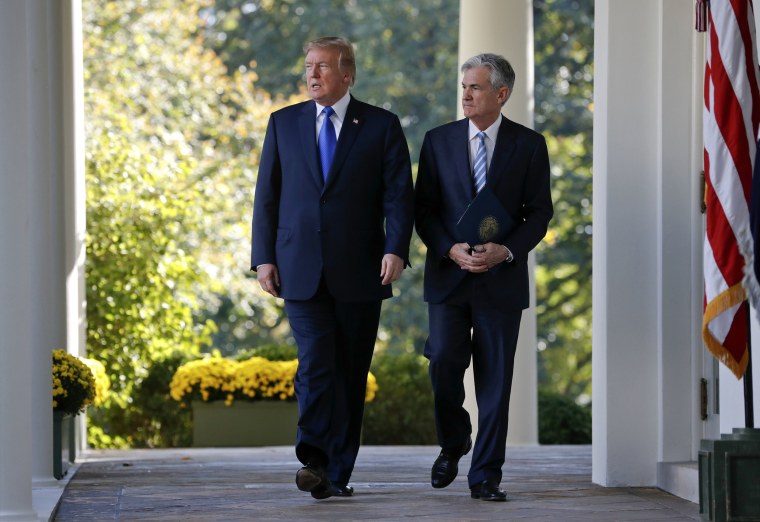A December rate hike was a foregone conclusion as recently as a few weeks ago, but the expectation that the Federal Reserve will increase its benchmark interest rate at the conclusion of its December policy meeting on Wednesday is no longer a sure thing.
Moreover, an increasing number of economists are suggesting that multiple increases in 2019 could be off the table. A volatile stock market characterized by plunges that have wiped out the past year’s gains, along with a growing body of evidence pointing to slower global growth next year, have erased much of Wall Street’s optimism.
A Wall Street Journal editorial on Tuesday called on Fed Chairman Jerome “Jay” Powell to hold off on raising rates at Wednesday's meeting. That exhortation was echoed by a tweet from President Donald Trump. “I hope the people over at the Fed will read today’s Wall Street Journal Editorial before they make yet another mistake,” he wrote, adding that the board of governors should “feel the market.”
"I think it’s still the most likely case that they’ll hike by 25 basis points. I think it’s pretty hard for them to back out at this point,” said Dan North, chief economist at Euler Hermes North America.
North said that the Fed hitting the brakes this month might even create more anxiety. “It’s a bad signal to the market if they were to change their mind,” he said. “It shows that the Fed thinks the economy’s at a greater risk than previously thought.”
There is mounting evidence that risks are rising, though. A new CNBC Fed Survey shows that the chance of a recession next year has risen to 23 percent, a jump of four percentage points since the previous survey and the highest level of negative recession sentiment of the Trump presidency.
More than 60 percent of economists in a new Reuters survey said they expect fewer Fed rate increases than they did just a month ago, and another Reuters survey of 500 economists found similar pessimism about the prospect of a recession: The odds of a recession within the next two years rose to 40 percent at the median.
At its December Cyclical Forum, the investment committee of Pacific Investment Management Company projected flagging economic momentum next year. “One year ahead, the model predicts a late expansion or even recessionary environment,” the company said in its report.
Although it characterized the current economic outlook as “flashing orange rather than red,” PIMCO predicted that U.S. GDP growth will drop below 2 percent by the second half of next year.
The most likely, and safest, course for the Fed would be to raise rates by one-quarter of a percentage point tomorrow, then acknowledge the recent market volatility and the threat that poses to consumer confidence, and signal that they’re reconsidering the pace of increases for 2019, North suggested.
“There’s a price to not following through. However, it sure looks like from action in the bond market in particular it would be well worth a pause now,” he said. “What’s going to be key for them is to change the statement and the ‘dot plot’ markedly.”
In the CNBC survey, 12 percent of respondents said they thought the Fed would raise rates but then lower then by next October. In the previous survey, none of the respondents projected a rate cut in that time frame.
Economists say there is a lot of pressure on Powell and the rest of the rate-setting committee to get it right. If the Fed underestimates a negative market response, it wouldn’t be as simple as undoing a rate hike at the next meeting, said Joseph LaVorgna, managing director and chief economist of the Americas at Natixis. “December is notoriously a time for very illiquid markets. If you get a negative response, it can really feed on itself. You’re trying to thread the needle here,” he said. An about-face in a short time frame also would hurt the bank’s credibility, he said.
LaVorgna suggested the Fed could opt to hold off on a December increase but telegraph an intent to revisit the idea in January. “There’s a message that’s been consistent across markets globally, and that’s that there is no inflation pressure and growth is likely to decelerate,” he said. “If they raise rates and it turns out that was a mistake, that’s much worse than just waiting and seeing how things play out.”
